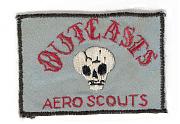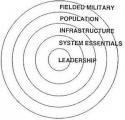What I would like to see ROTC do is shift away from its heavy emphasis on technical majors and move more into a dynamic form of officer entry.
Currently there are SOME language-type programs available for our cadets, either in the form of advanced language training or cultural immersion (basically a semester or two spent overseas). However, there is no direct link between this system and the university's relations with overseas universities (the school I work for has exchange programs with universities in a number of places, including Egypt and Morocco

). What ROTC COULD be used for is to draw in more people with a liberal arts background (anthro and history, to name two examples) and then allow them (in fact encourage them) to take a semester or two overseas (through the university's exchange program). This would give them a leg up in terms of real skills and cultural exposure when they go on active duty. Currently ROTC does not really tolerate time "away from the unit," which prevents us from making the best use of our students and the programs that are available for them.









 ?????
?????
 ). What ROTC COULD be used for is to draw in more people with a liberal arts background (anthro and history, to name two examples) and then allow them (in fact encourage them) to take a semester or two overseas (through the university's exchange program). This would give them a leg up in terms of real skills and cultural exposure when they go on active duty. Currently ROTC does not really tolerate time "away from the unit," which prevents us from making the best use of our students and the programs that are available for them.
). What ROTC COULD be used for is to draw in more people with a liberal arts background (anthro and history, to name two examples) and then allow them (in fact encourage them) to take a semester or two overseas (through the university's exchange program). This would give them a leg up in terms of real skills and cultural exposure when they go on active duty. Currently ROTC does not really tolerate time "away from the unit," which prevents us from making the best use of our students and the programs that are available for them.
 .
.

Bookmarks